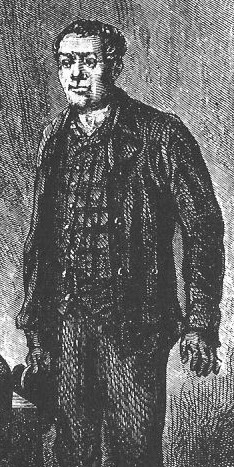This post begins a short series discussing major characters from Jules Verne’s Twenty Thousand Leagues Under the Sea. I’ll start with Conseil.
First, a reminder. Along with the esteemed and talented Kelly A. Harmon, I will be co-editing Twenty Thousand Leagues Remembered, an anthology of short stories honoring Verne’s novel. Submissions open this Friday, January 10. Although submissions are scheduled to close on April 30, Pole to Pole Publishing accepts stories on the fly, so once the anthology is filled, later stories get rejected. Submit early; all their anthologies have closed before the advertised closing date. See all the details here.

Now, to Conseil. The book’s narrator, Professor Pierre Aronnax, introduces him this way: “Conseil was my manservant. A devoted lad who went with me on all my journeys; a gallant Flemish boy whom I genuinely liked and who returned the compliment; a born stoic, punctilious on principle, habitually hardworking, rarely startled by life’s surprises, very skillful with his hands, efficient in his every duty, and despite his having a name that means “counsel,” never giving advice—not even the unsolicited kind!”
Well, this is mostly true. At thirty years old, Conseil is hardly a lad or boy. Also, that last sentence is doubly ironic. ‘Conseil’ means ‘counsel’ or ‘advice’ in French, and though Aronnax thinks his servant never gives advice, he often does so.
Aronnax goes on to mention Conseil’s habit of referring to his master in the third person. Although we often see Conseil beginning a sentence with, “If Master pleases…” or “If Master will permit me…” this, also, turns out to be a rule broken on occasion.
Conseil’s first characteristic mentioned by Aronnax is devotion, and in this, Conseil is consistent. The servant jumps into the ocean when his master falls in, and helps to keep him afloat. Conseil agrees to don a diving suit when Aronnax does so, and accompanies him on every excursion.
The utterly loyal servant became a stereotypical character in Verne’s novels, most notably with Passepartout in Around the World in Eighty Days, and Nebuchadnezzar (Neb) in The Mysterious Island. In each case, Verne has literary purposes for these characters, such as representing the “common man” to whom the genius explains certain scientific phenomena, or to dramatically play off some other character’s eccentricity, or simply to keep conversations going.
In 20,000 Leagues, Conseil serves as an intermediary between Aronnax and Ned Land. Conseil may be devoted to his master, and shares the professor’s interest in sea creatures, but he is, like Land, a common man and spends a lot of time with the Canadian harpooner. It is Conseil who must explain to Aronnax why Ned Land behaves the way he does.
The servant also becomes the calming influence on all actions in the novel. Whenever Aronnax becomes overly excited or afraid or alarmed, Conseil grounds him and helps him relax. Conseil also attempts to sooth the impetuous Ned Land, but with less effective results.
In a couple of scenes, Conseil becomes the imaginative voice of Verne himself. Early on, Conseil laments “the drawback in not having one universal language,” a cause for which Verne was an enthusiast. Later, when they reach the central Mediterranean, Conseil considers the possibility of a volcanic upheaval closing off that sea from the Atlantic. This foreshadows, in a way, Verne’s later novel Invasion of the Sea.
Conseil serves yet one more purpose in the novel. He is Verne’s tribute to his friend Jacques-Francoise Conseil, who is said to have built a submarine craft in 1858.
Watch this space for more character analyses from—
Poseidon’s Scribe
